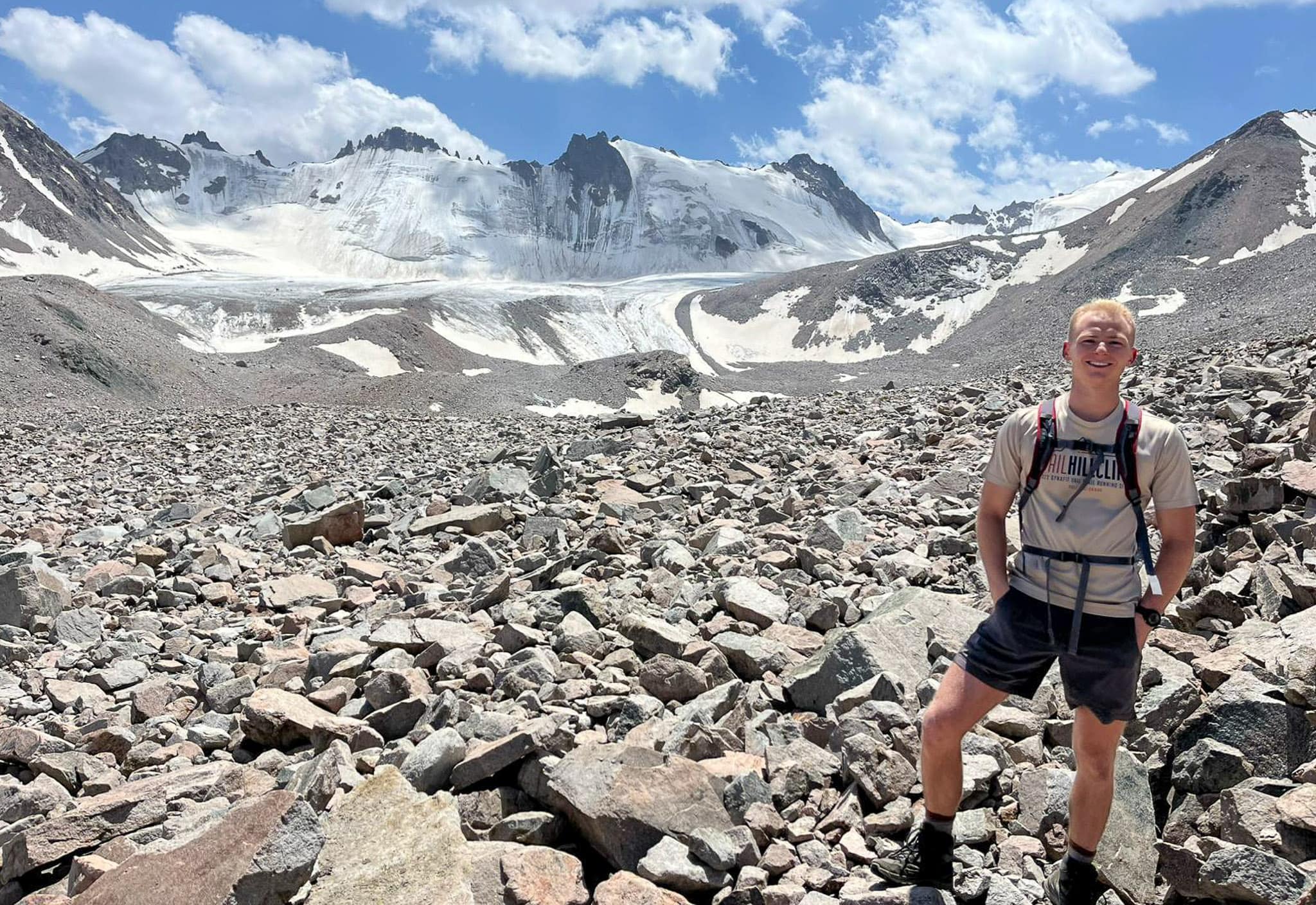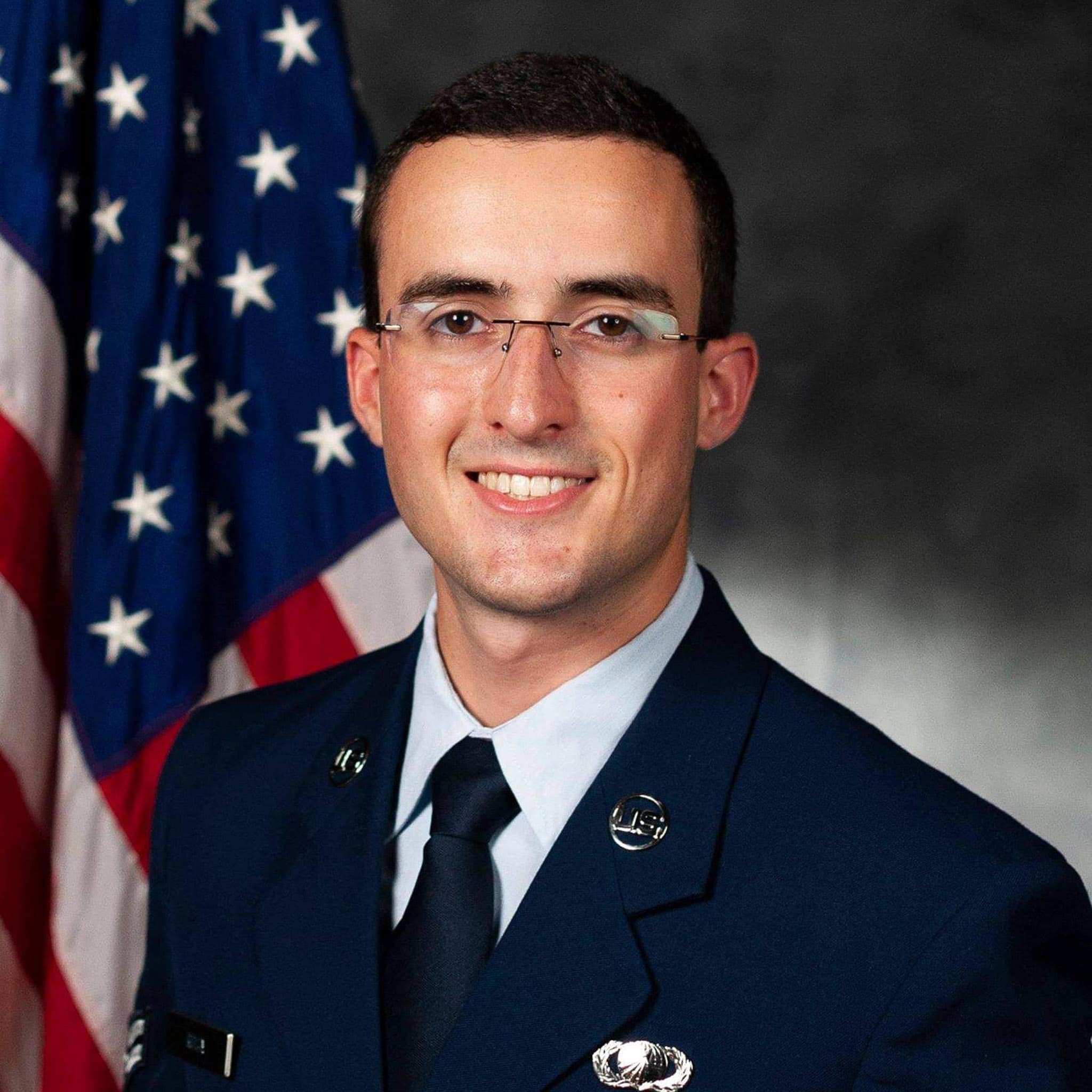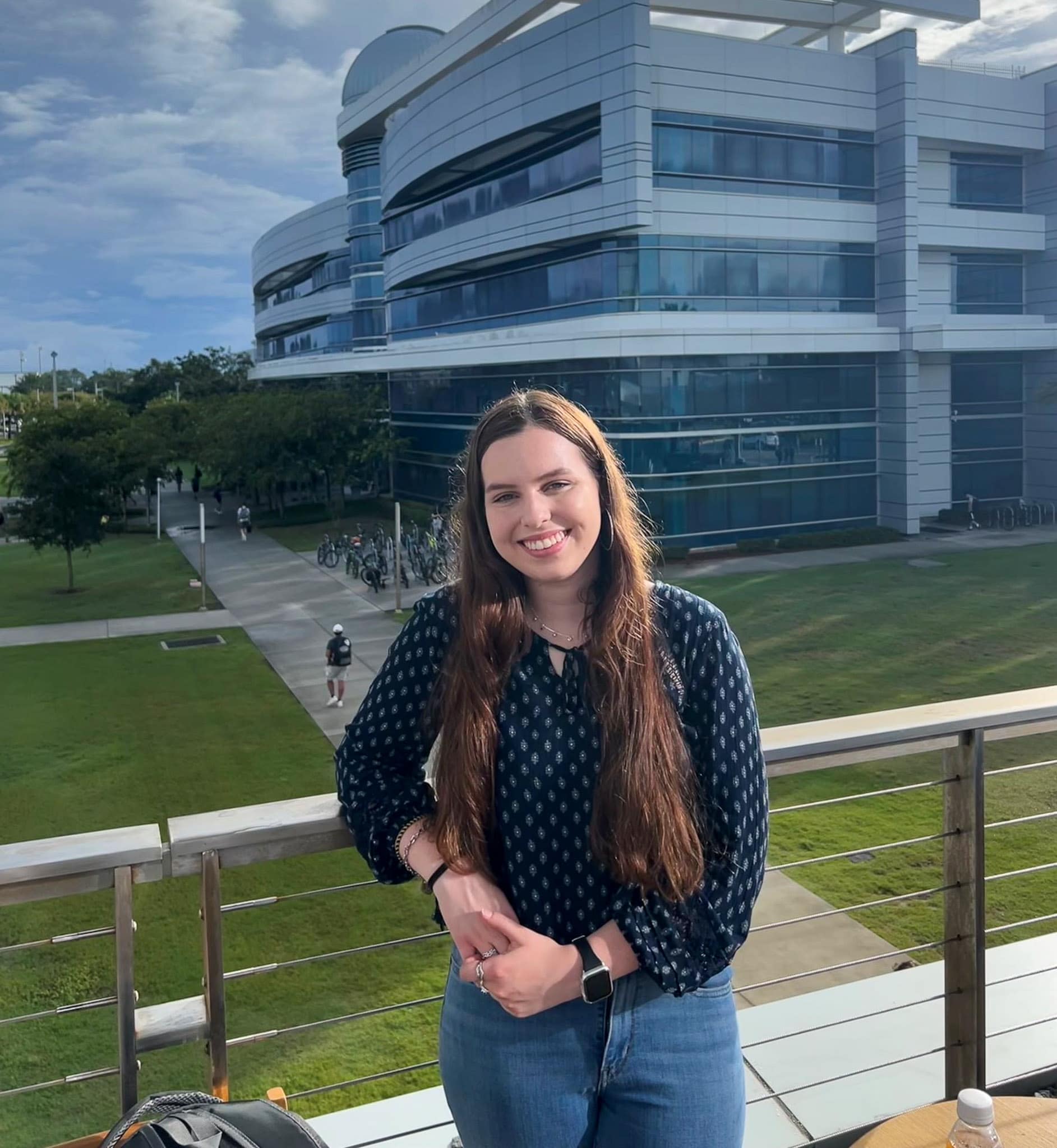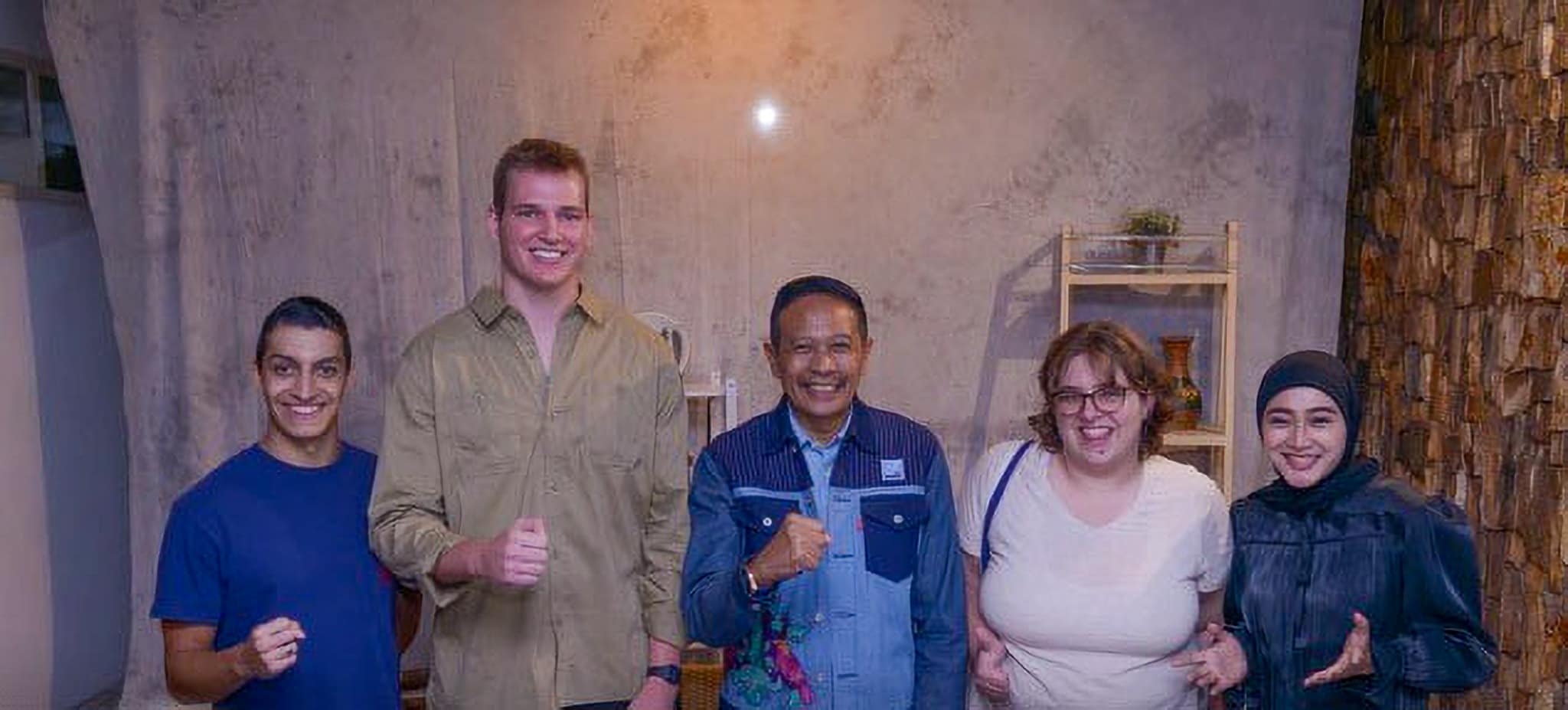Four Embry-Riddle Eagles Enhance Critical Language Skills Via State, Defense Department Scholarships

While living with a Kyrgyz family this summer, Embry-Riddle Aeronautical University student Christopher Miller improved his Russian language skills and sampled Central Asian delicacies, including fermented horse milk.

Lucas Cristaldi, a Worldwide student who is serving active duty in the U.S. Air Force, spent eight weeks learning Russian through the CLS Spark program, which provides virtual language instruction. (Photo: Embry‑Riddle/ Lucas Cristaldi)“Kyrgyzstan was awesome and getting a chance to speak Russian every day was great,” said Miller, who completed eight weeks of intensive Russian language studies at the American University of Central Asia (AUCA) in Bishkek, Kyrgyzstan.
Miller was one of three Embry-Riddle students recently selected for the U.S. State Department’s highly competitive Critical Language Scholarship (CLS) Program, a government effort to expand the number of students studying and mastering foreign languages that are critical to U.S. national interests. Lucas Cristaldi studied Russian and Brianna Johnson learned Korean virtually through CLS’s Spark program.
Additionally, student Luke Cisneros was chosen for the prestigious Boren Award, which are funded through the Defense Language and National Security Education Program and provide students with resources and assistance to acquire language skills and experience in countries critical to U.S. national security.
This summer, Cisneros completed an 8-week intensive language program in Indonesian at the University of Wisconsin - Madison’s Southeast Asian Studies Summer Institute and is currently studying in Indonesia for the fall semester. Boren awards recipients have a one-year federal service requirement.
“The Boren experience isn’t only great because of the service requirement, but it also gives me experiences, lessons, and knowledge about living in a foreign environment,” he said.
Language Lessons: Virtually and Abroad
Cristaldi, a Worldwide student who is serving active duty in the U.S. Air Force, spent eight weeks learning Russian through the CLS Spark program, which provides virtual language instruction.

Brianna Johnson, a senior studying Astronomy and Astrophysics and Global Conflict Studies, studied Korean virtually through the CLS Spark program. (Photo: Embry-Riddle/Brianna Johnson) “The virtual CLS Spark program is a newer option,” said Jennifer Schaeffer, director of the university’s Office of Nationally Competitive Awards & Scholar Development. “It's a great opportunity for Worldwide or flight students who may not be able to go abroad for the summer.”
Cristaldi’s 8-week virtual CLS Spark Russian program was based in Moldova and included two hours of daily language and culture instruction. Classes were small, with a total of five students.
“If you were shy, you wouldn’t be by the end of the class,” said Cristaldi, a senior studying Aeronautics. “It was challenging at times but incredibly fulfilling.”
As a peer mentor for Worldwide’s Center of Mentorship Programs and Student Success (COMPASS), he said he hopes to encourage other students to take advantage of unique opportunities like CLS Spark.
Johnson, a senior studying Astronomy and Astrophysics and Global Conflict Studies who studied Korean through the CLS Spark program, said that the virtual classes didn’t diminish the experience
“Even though it was virtual, it felt really personal since we had a class of five and an amazing instructor,” she said.

Chosen for a Boren Scholarship, Student Luke Cisneros (far left) completed an 8-week intensive language program this summer at the University of Wisconsin - Madison’s Southeast Asian Studies Summer Institute and is currently studying in Indonesia for the fall semester. (Photo: Embry-Riddle/Luke Cisneros)For Miller, who recently earned his bachelor’s degree in Computational Math and commissioned into the U.S. Air Force, Russian is a skill he hopes to incorporate into his military career. He will start helicopter pilot training soon but is interested in eventually serving as a foreign area officer or military attaché. Last summer, he completed a Russian language immersion program in Latvia through the Project Go program, which is for ROTC students.
Cisneros, who is studying Global Security and Intelligence Studies at the Prescott Campus, said the Boren Scholarship has given him an amazing opportunity to challenge himself personally and academically.
“Using a different language every day is a challenge like no other I’ve faced and has put me in situations that require creative thinking and courage,” Cisneros said. “But this international experience is precisely the reason I chose Embry-Riddle and why I want a career in the government.”
